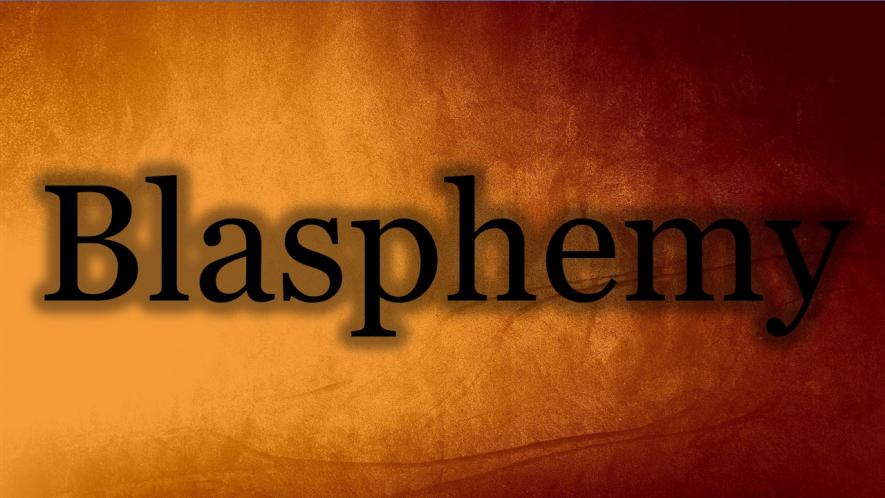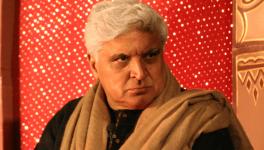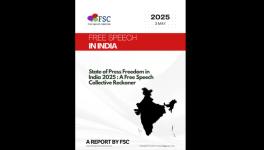Section 295 A: The Indian Blasphemy Law in Making

A wave of religious fanaticism has engulfed the entire globe, its magnitude no less in India, which has been witnessing the same trend. Academics and performers have found themselves at the receiving end of backlash even while expressing a legitimate or fair opinion on religion.
Such a situation is only aggravated when the instrument of law serves the interest of extremist groups. The recent FIR on the actors, producers and the director of Tandav, an Amazon Prime web series and the case of comedian Munawar Faruqui, who has been accused of allegedly hurting religious sentiment stand as testament to the surge in hypersensitivity in matters related to faith.
Comedian Munawar Faruqui was arrested by the Indore Police for the alleged hurting of religious sentiments under Section 295 A of the Indian Penal Code. While the sessions court had already dismissed his bail applications, the Madhya Pradesh High Court had earlier reserved orders on his bail applications saying that “such people must not be spared”. The MP HC has since denied him bail.
The statement by the high court, at a stage where the guilt of the accused has not been proven, stands contradictory to the ‘presumption of innocence of the accused’ – one of the cardinal principles of criminal jurisprudence.
An arrest on the mere likelihood of hurting religious sentiments along with the uncertainty involved in obtaining bail triggers a debate: Are such laws being used by the state machinery as a disguised instrument of oppression?
Section 295 A is considered to be the Indian variant of the Blasphemy laws. It penalises insulting a religion or religious beliefs of any class of citizens if such insult is offered with the deliberate and malicious intention of outraging the religious feeling of that class. Antithetical to the secular ethos of the Indian Constitution, it jeopardises the freedom of speech and expression, personal liberty, development of scientific temperament and the spirit of reform in the society.
In 1957, the constitutional validity of Section 295 A was challenged in Ramji Lal Modi v. State of U.P on the ground that the provision did not constitute a reasonable restriction on free speech and expression within the meaning of Article 19(2) of the Constitution. The Court upheld the constitutionality of the provision and observed that in accordance with Article 19(2) of the Constitution, it was a reasonable restriction upon the freedom of speech ‘in the interest of public order’.
The Court did clarify that Section 295 A punishes only the aggravated form of insult on religion when it is perpetrated with the deliberate and malicious intention of outraging the religious feelings of that class. Later, in The Superintendent, Central Prison Fatehgarh v Ram Manohar Lohia., a proximate link between the exercise of speech and public disorder was necessitated, rather than a far-fetched, remote or fanciful connection. Developing upon the same approach in S. Rangarajan v P. Jagjivan Ram, it held that the connection between speech and disorder must resemble that of a ‘spark in a powder keg’; Further bolstering this test in 2011, it held that only speech that amounted to ‘incitement to imminent lawless action’ could be punished.
Recently, in the Shreya Singhal judgment, the Supreme Court made a distinction between advocacy and incitement and held that the law restricting free speech must be interpreted narrowly otherwise the chilling effect on free speech would be total.
Any opinion not in line with the majoritarian mores of the day can be very easily caught within the net of such a law. This becomes problematic because classified as a cognisable offence, it allows the police to arrest the accused without a judicially sanctioned warrant at the instance of an FIR or the complaint being deemed by the police officer as merely “reasonable”. This increases the likelihood of the abuse of law at the whims of the executive authority. Coupled with the non-bailable character of the offence, there is an even larger probability of the harassment of the accused for a prolonged period.
Application of Section 295 A must have greater clarity; else it will continue to be utilised by hypersensitive groups as a tool of intimidation. Firstly, at the stage of registration of a case, there must be an application of judicial mind before the case is registered to ensure that it is not used to target legitimate speech. Secondly, the section must be attracted only in instances of aggravated insults and the test of proximity between speech and public disorder as laid down by some of the judicial pronouncements should be made the touchstone while deciding on such cases.
The sentiment which the provision seeks to protect must be protected, but not by gagging free thought, speech and expression. Moving away from the public disorder objective and focusing entirely on the anti-religious content of speech would mean the operation of laws of blasphemy in a nation that is constitutionally secular. In the existing state of things, any meaningful engagement with religion which is the beating heart of the Indian society would invite serious repercussions, thereby eroding the spirit of reform in a society that is in dire need of it.
The writer is a final year law student at the Faculty of Law, University of Delhi. The views are personal.
Get the latest reports & analysis with people's perspective on Protests, movements & deep analytical videos, discussions of the current affairs in your Telegram app. Subscribe to NewsClick's Telegram channel & get Real-Time updates on stories, as they get published on our website.























